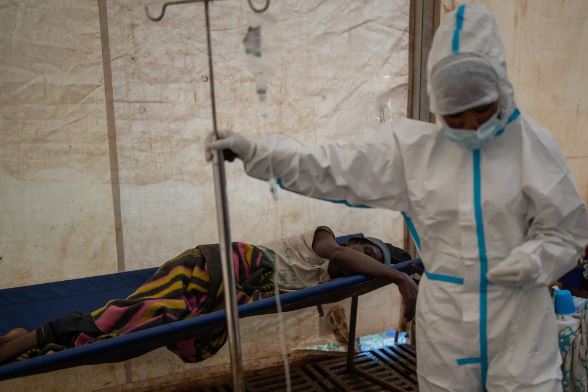Cholera outbreaks across the world are becoming increasingly lethal, according to a new report from the World Health Organization (WHO). In 2023, deaths from cholera surged by 71 percent compared to 2022, while the number of reported cases rose by only 13 percent. This sharp rise in fatalities has been attributed to a range of factors, including conflict, climate change, and overwhelmed healthcare systems.
Cholera, a diarrheal disease that can cause rapid dehydration and death, is easily preventable and treatable with simple and affordable measures, such as oral rehydration salts and intravenous fluids. However, large-scale outbreaks have outstripped the capacity of even well-prepared health systems in countries that had not dealt with cholera for years.
“This increase in death rates far surpasses the rise in cases, which is completely unacceptable,” said Philippe Barboza, leader of the cholera team within WHO’s health emergencies program. Barboza emphasized that the global community’s lack of attention to cholera, a disease that has afflicted the poorest populations for millennia, is partly to blame. Cholera typically affects those who cannot access clean drinking water, highlighting the deep inequities in global health infrastructure.
While official reports from 2023 indicated that more than 4,000 people died of cholera, the true death toll is likely much higher. WHO’s modeling efforts, based on data from various testing programs, suggest that the actual number of deaths could exceed 100,000.
Cholera’s rapid lethality stems from dehydration caused by severe vomiting and diarrhea. Without swift treatment, patients can die in as little as a single day. Despite the disease’s simplicity in terms of treatment, many victims die without access to even the most basic medical interventions, such as oral rehydration salts, which cost as little as 50 cents.
The spread of cholera in 2023 affected 45 countries, up from 35 countries in 2021. The global burden of the disease has increasingly shifted to Africa, which saw a 125 percent rise in cases in 2023. Southern Africa, in particular, has been hit hard due to extreme weather events, including floods and droughts, which have caused populations to congregate around contaminated water sources.
Countries like Zambia and Malawi, which had previously mounted strong responses to cholera outbreaks, struggled to contain the disease in 2023 as their health systems were overwhelmed. In Zambia’s capital, Lusaka, authorities were forced to set up a cholera treatment center in a stadium to manage the influx of patients. In Sudan, where more than nine million people have been displaced by civil war, cholera has spread rapidly in overcrowded camps lacking basic sanitation. Despite efforts by health workers to contain an outbreak in 2023, the disease has since resurged, with more than 5,600 new cases reported since mid-August 2024.
Several countries, including Afghanistan, Bangladesh, Ethiopia, the Democratic Republic of Congo, Haiti, Mozambique, Somalia, and Zimbabwe, all reported large-scale outbreaks with more than 10,000 suspected or confirmed cases each. This figure was more than double the number of large outbreaks reported annually between 2019 and 2021. Many of these fatalities were so-called “community deaths,” where victims did not reach health facilities in time to receive care.
The global cholera crisis is further complicated by the persistent shortage of vaccines. Demand for cholera vaccines has consistently outstripped supply, particularly in low- and middle-income countries where the vaccines are priced as low as $1.50 per dose. In 2022, WHO took the unprecedented step of recommending a single-dose strategy to stretch the limited supply, despite the fact that a two-dose regimen provides longer protection. Even so, fewer than half of the requested 74 million doses were available in 2023, leaving many countries, including Sudan and Gaza, without enough vaccines for preventive campaigns.
Currently, the only global supplier of cholera vaccines is South Korean pharmaceutical company EuBiologics, which is working to increase its production capacity by 40 percent by the end of 2024. However, even with this expansion, the global supply for next year is not expected to exceed 50 million doses. Given the rising number of outbreaks, experts believe that the world will need at least as many doses as the 74 million requested in 2023, if not more.
A second vaccine, HillChol, developed by Indian company Bharat Biotech, was recently approved for domestic use in India. The company is expected to apply for WHO authorization and hopes to begin supplying the global stockpile by 2026, with an initial target of 40 million doses per year.
The combination of increasing cases, overwhelmed health systems, and a shortage of vaccines poses a significant challenge to global health efforts to control cholera. Without greater international attention and resources, the disease is likely to continue taking a devastating toll on vulnerable populations.

